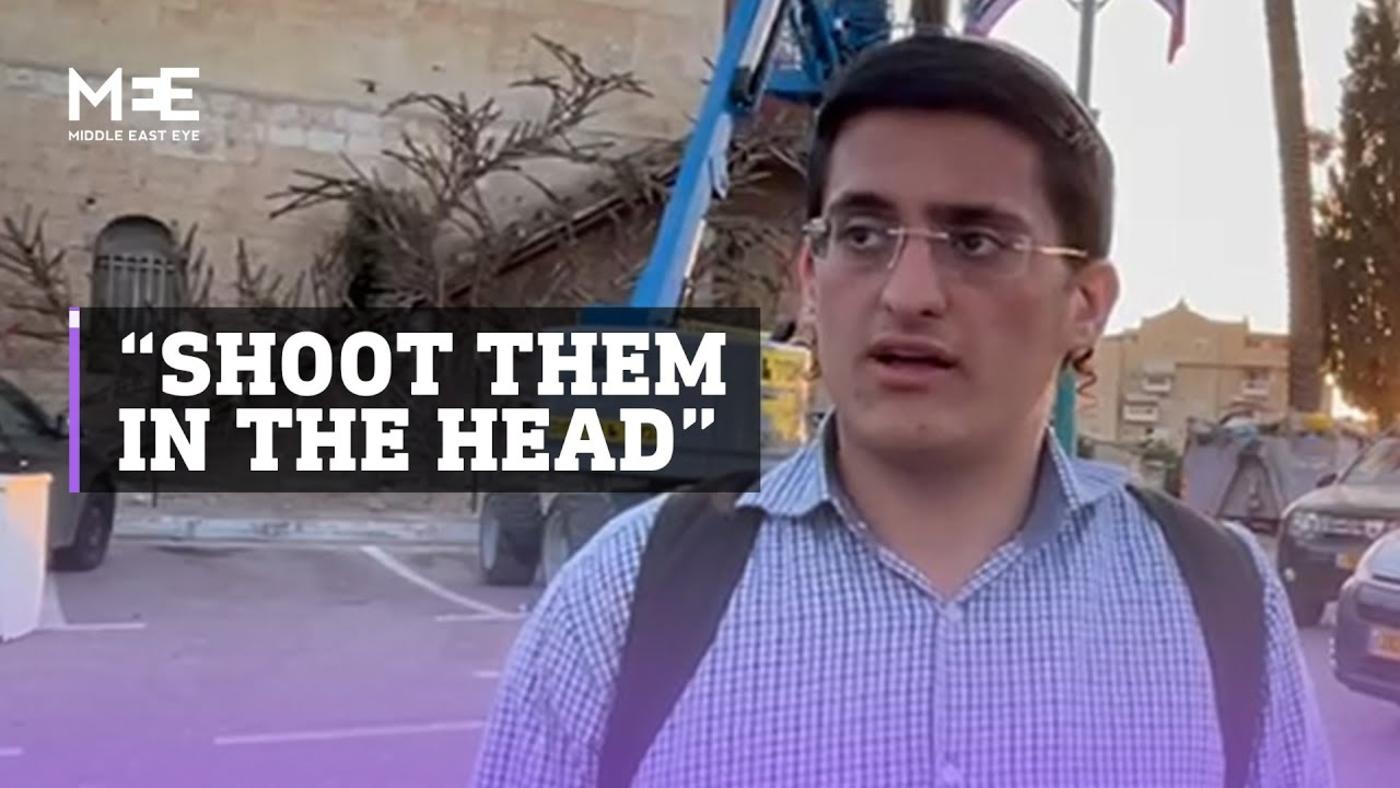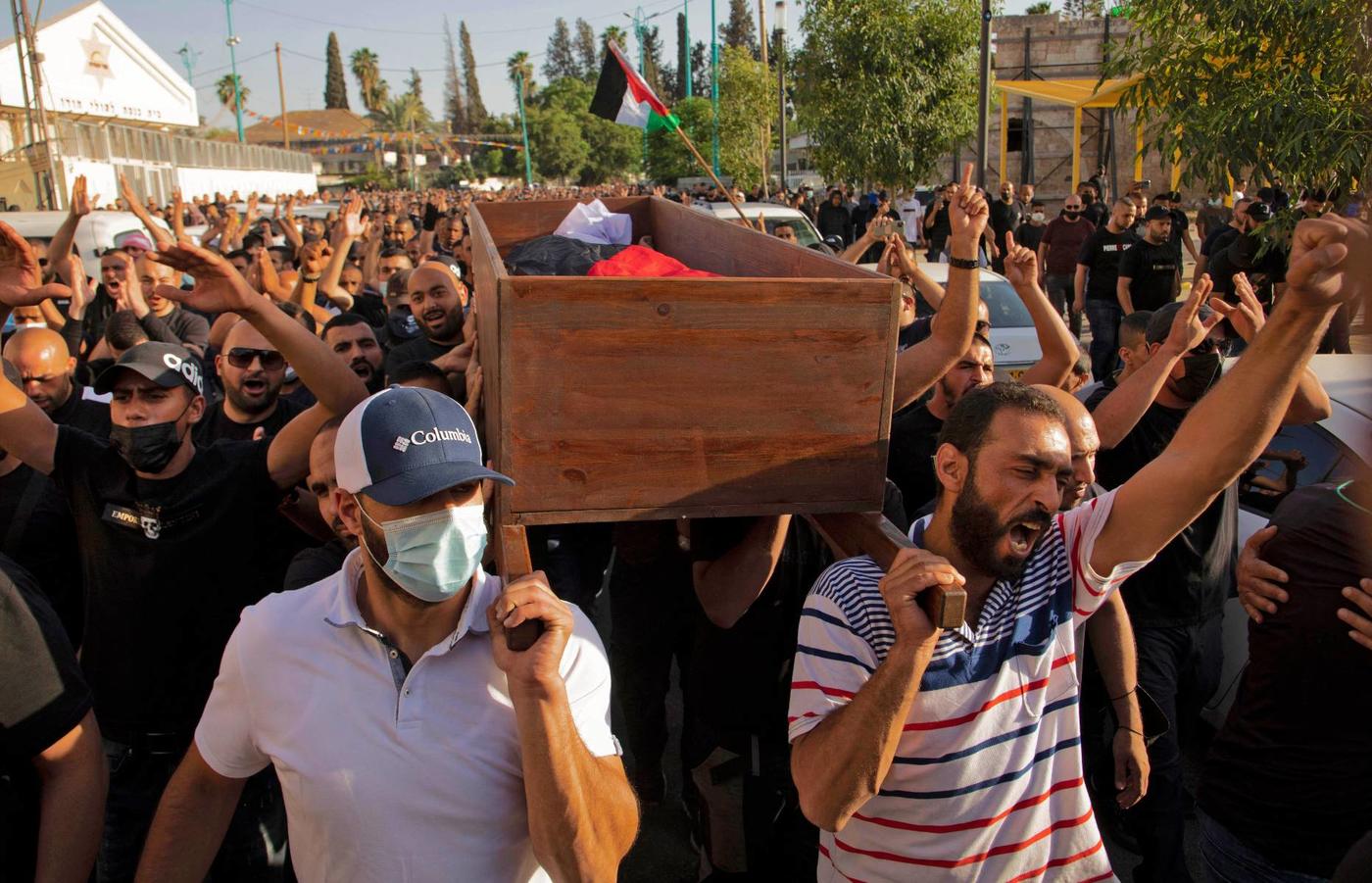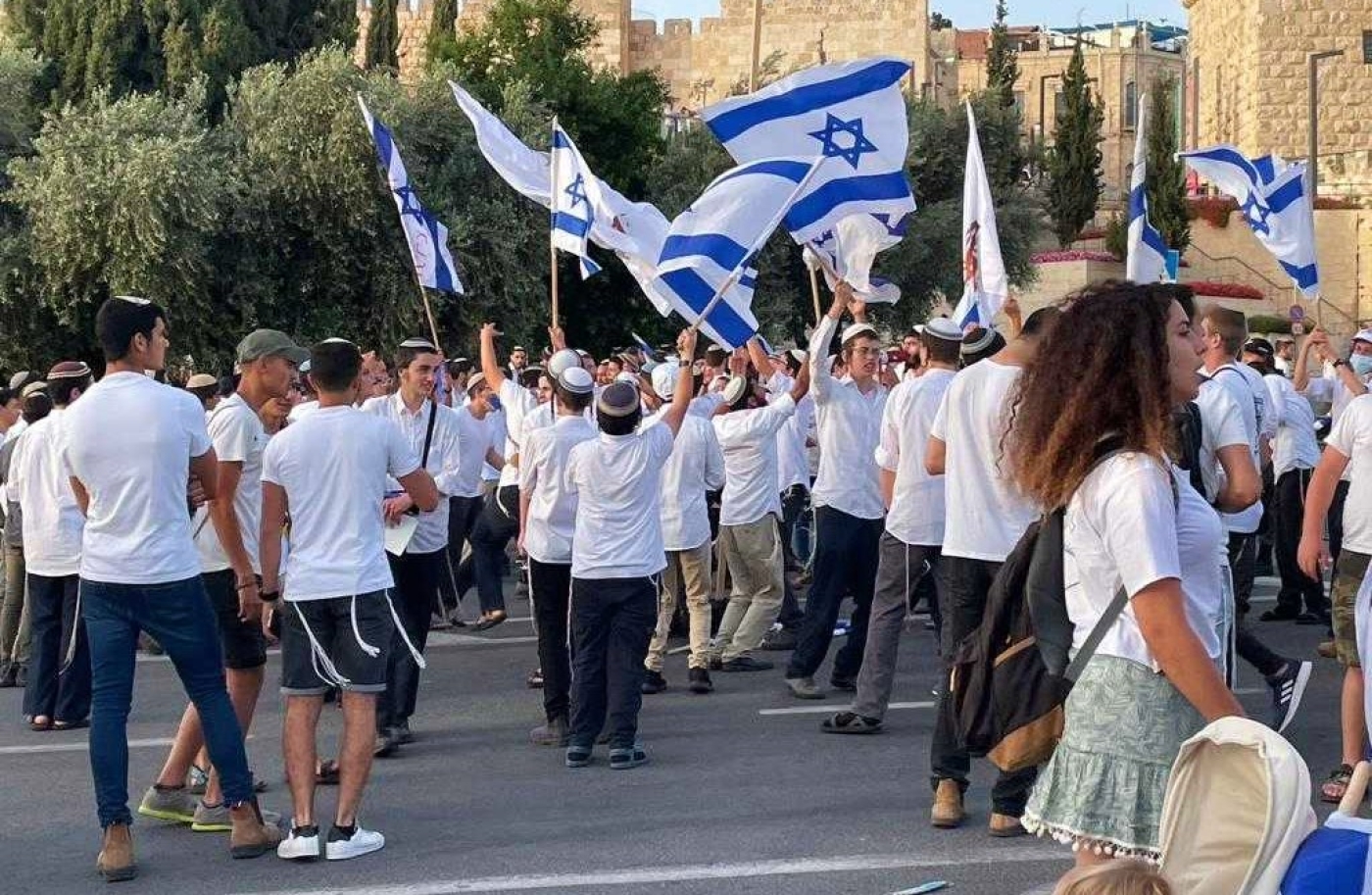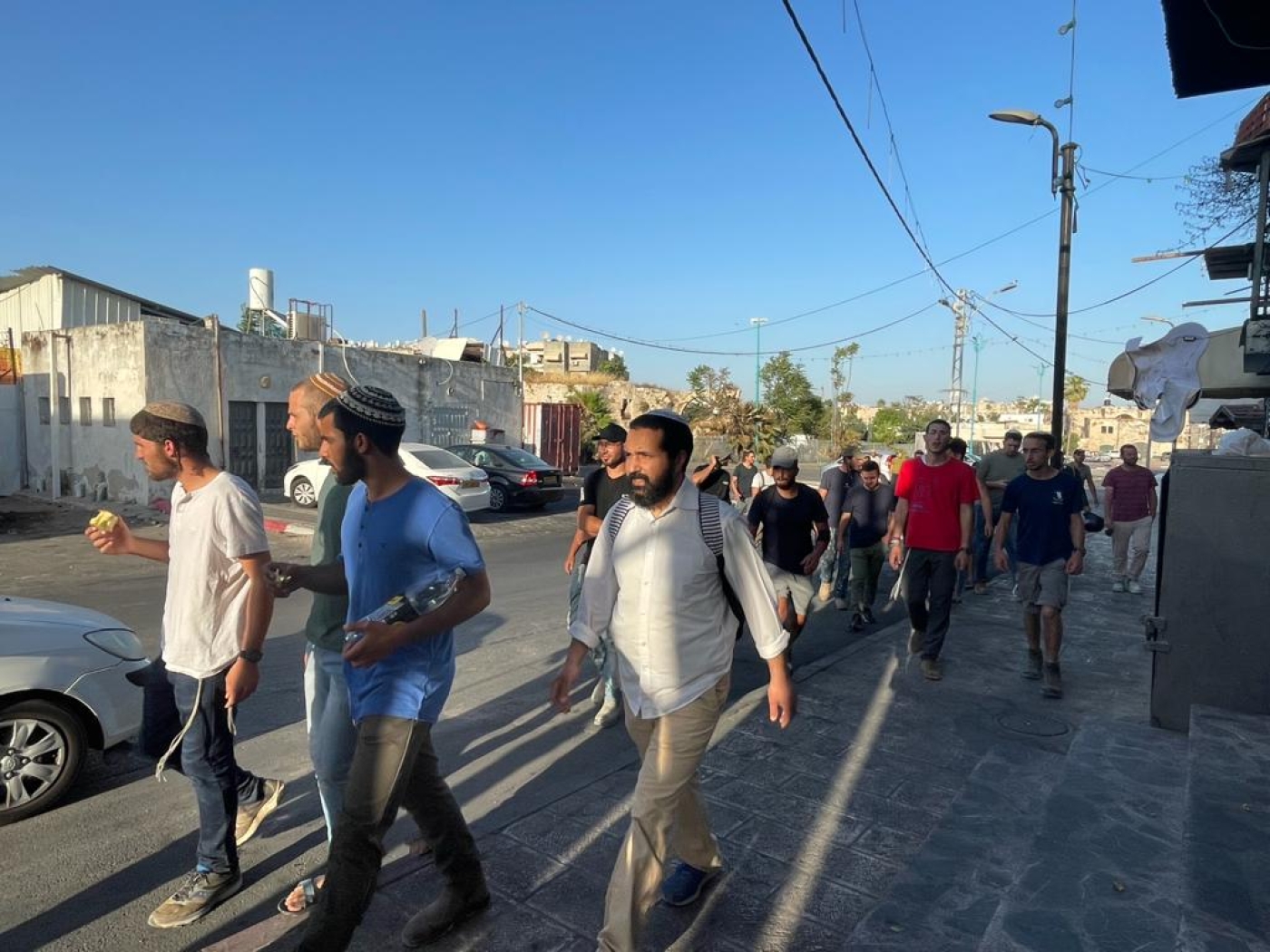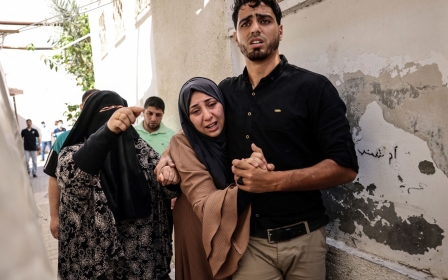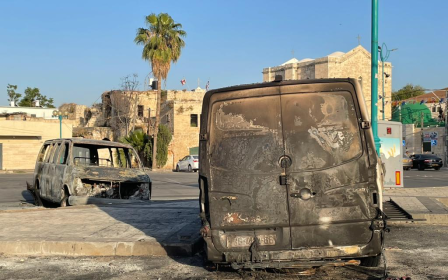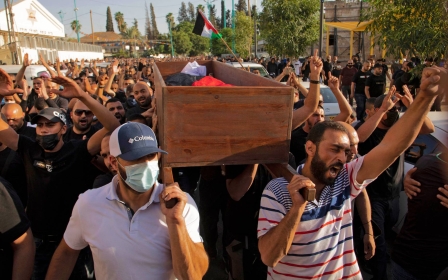Israel-Palestine: Meet the young Jewish ultra-nationalists stoking violence
The eruption of violence this week, first in Jerusalem, then in Gaza, has drawn unprecedented levels of Palestinians living in Israel on to the streets - and with them have come a new breed of Israeli ultra-nationalists storming Palestinian towns inside Israel.
But what is new is just how openly and unabashedly far-right Israelis, frequently young and sometimes armed, are now roaming Palestinian communities in Israel under the protection of the Israeli police and army, calling for the death of Arabs while citing quotes from the Torah.
“When they get crazy like animals, to shoot one in the chest or in the head, just once is enough and it will be over,” 21-year-old Noam, who is Jewish, told Middle East Eye this week in Lod.
The Palestinian-minority city, just south of Tel Aviv and known as Lydd to Palestinians, has been on edge after days of protest, fires, and the murder of a Palestinian protester. Mosques, synagogues and cars have been vandalised, police reinforcements sent in and a night curfew imposed.
Calling for the transfer and death of Palestinians has now become a normal, everyday occurrence here.
Relaxed and matter of fact, Noam said he and his friends were walking around the Palestinian-minority city just south of Tel Aviv to "show it's Jewish" and were wanting to "settle in the houses of people who left because they were scared of the Arabs".
Jerusalem Day uproar
Noam is one of dozens of young ultra-nationalists with whom MEE spoke during the past 10 days.
Among this new wave are young Israelis from West Bank settlements who came to Jerusalem and various cities across Israel to offer their support, joining with other young people who have grown up in Israel in families that have been here for several generations.
On Monday, thousands of right-wing Jews attended the Jerusalem Day march, which marks Israel's capture and subsequent occupation of East Jerusalem during the 1967 war.
They included teenage boys, dancing with Israeli flags and wearing T-shirts that said "Sovereignty Now" and other slogans supportive of Rabbi Meir Kahane, who advocated the killing of Palestinians and was banned from entering the Knesset in the 1980s after he was identified by the state as a terrorist.
The youngsters spoke freely about killing Arabs and population transfer
"The Ravi [Rabbi] Kahan was right," said one sticker that most of the young men carried with them. One teenage boy pointed out that a nearby Israeli police car was adorned with the same sticker.
The youngsters spoke freely about killing Arabs and population transfer. When asked about the situation in Jerusalem, hours after the Israeli police stormed al-Aqsa and hours before rockets would start flying from Gaza, they said that they were not scared.
Many instead declared that all of Israel belonged to them and that there was no place for Arabs. They then attempted to remove metal barriers which the Israeli police had erected to stop them from marching on the Old City.
A history of violence
The Israelis MEE spoke to this week were young and part of what feels like a new generation.
But some observers say that they are acting on impulses that have always been part of Israel - impulses that have only become socially palatable following the election of far-right politicians such as Itamar Ben Gvir and Betzalel Smotrich to the Knesset.
"This kind of racist violence has been in existence since the foundation of the state. It is in large part at the very foundations of statehood," says Gil Rothschild, an expert in institutional racism based in Jerusalem.
"Over the years it has maintained variably symbiotic relations with state institutions such as the military or police forces. Yet there often remained a tacit agreement whereby the state can look the other way while so-called 'outlaws' take matters into their own hands."
Writing for MEE, commentator Jonathan Cook described the backlash against Palestinian communities inside Israel as "a combination of official violence from Israeli police and vigilante-style violence from far-right Jewish gangs".
But Gil argues that these gangs should not be seen less as operating outside the law and more as a tacit arm of the state. "Like in the case of lynchings by white supremacists in the US, historically and today, we should not readily accept the state's formal definition of such murderous violence as 'extra-legal'," he says.
"It is no coincidence that former slave patrols and 'white power' vigilante groups have transformed or been incorporated into contemporary police departments. What we see today is closer to the rule than to the exception."
Armed patrols in Lod
Back in Lod, Noam and dozens of young Jewish Israelis, some with rifles, gather near a community centre to organise themselves before marching around the town.
The chants echo around the streets, including 'death for Arabs'
They tell MEE that they don't trust the police will protect the city as they set off in 20-strong "patrol groups".
The chants echo around the streets, including "death for Arabs", "die Mohammed" and, using a phrase from the Torah, "the sons return to their homeland".
"We came here from different settlements and towns to support the Jewish people of Lod, and to protect them from Arabs," says one of them. "Some of us will sleep inside the houses and others will march in the town."
Middle East Eye propose une couverture et une analyse indépendantes et incomparables du Moyen-Orient, de l’Afrique du Nord et d’autres régions du monde. Pour en savoir plus sur la reprise de ce contenu et les frais qui s’appliquent, veuillez remplir ce formulaire [en anglais]. Pour en savoir plus sur MEE, cliquez ici [en anglais].


